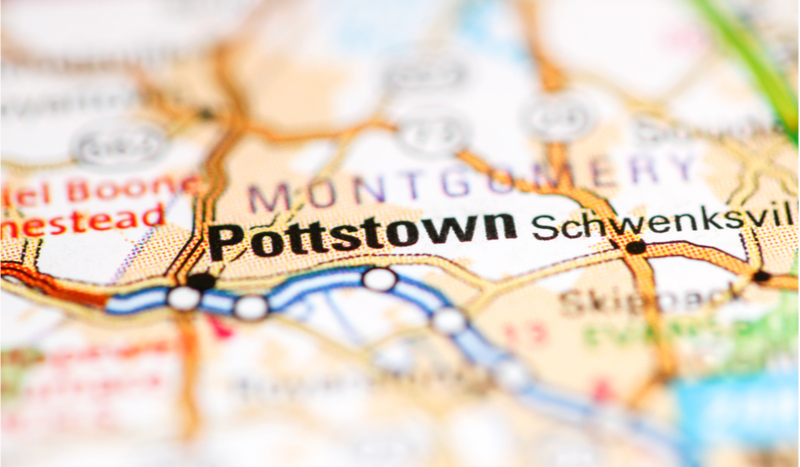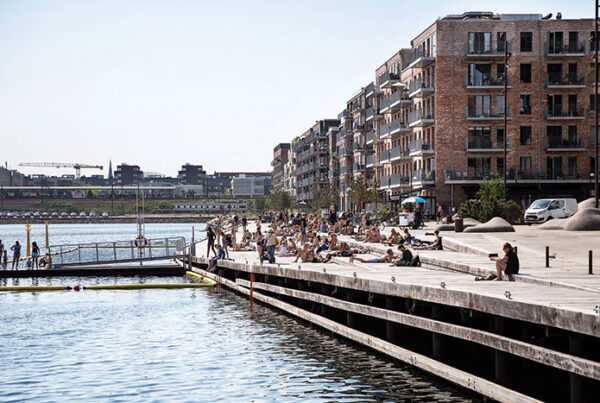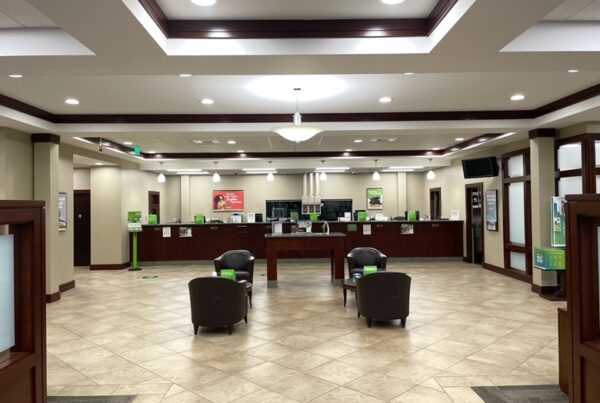
(Shutterstock)
Forty miles west of Philadelphia, the borough of Pottstown sits on the edge of Montgomery County, one of the wealthiest counties in Pennsylvania. Once home to a vibrant industrial iron and steel economy, Pottstown, like many of its contemporary Rust Belt communities, has struggled with economic revitalization and reinvestment.
Whereas Midwestern cities such as Detroit and Pittsburgh, with their larger anchor institutions (e.g., hospital networks or educational institutions), have had some success evolving into postindustrial economies, many small and medium-sized communities in other parts of the United States have suffered economic decline and population loss, facing greater barriers to revitalization because of some combination of their size and location. Pottstown is one of these communities.
Although Pottstown is not well known beyond its region, the ULI Advisory Services program is no stranger to this community, which was founded in 1752. Over the past 45 years, the ULI program has visited the borough three times. Most recently, in October 2019, the Pottstown Area Health & Wellness Foundation, a nonprofit organization that provides grant funding to local community groups and initiatives focused on the health and well-being, requested that Advisory Services convene a fourth panel there.
Despite its proximity to wealth in Montgomery County, Pottstown has higher concentrations of poverty, lower educational attainment, and a higher rate of unemployment than surrounding areas. Additional challenges for the borough include an older housing stock in need of repair, and a low tax base stemming from a combination of factors, including large properties held by nonprofit landowners.
Even with these challenges, the borough has made great strides in revitalizing its downtown and has seen generous community stewardship through various nonprofits and citizen-led initiatives aimed at improving the health, education, and success of residents. Although these are significant steps, Pottstown is still struggling to generate a strong economic base for its residents and a desirable housing stock, and to compete with neighboring jurisdictions as a place to live, work, and invest.
In 2019, Advisory Services assembled a volunteer panel with members expert in the areas of real estate development, architecture, planning and local governance, and housing. During their week in Pottstown, panelists toured the borough and engaged with residents and other stakeholders from the public, private, and nonprofit sectors.
“Urban Land Institute’s multidisciplinary panel has the ability to provide us with fresh perspective through research-based and unbiased recommendations,” said David Kraybill, president of the Pottstown Area Health & Wellness Foundation. “As the borough of Pottstown continues its revitalization, we are excited about this opportunity to advance the conversation about building a more equitable, sustainable, and prosperous community.”
During discussions with the nearly 90 members of the community, the panel heard a consistent message of community pride mixed with concern for the borough’s future. The local business community, nonprofit organizations, and residents want to see Pottstown grow and thrive; they want to see their school system improve and better the life outcomes of residents struggling to make ends meet; they want to see fewer run-down homes and more new housing options; and they want Pottstown to be a place that can attract growing businesses that will call their borough home.
Given this tall order, the panel worked throughout the week to come up with a detailed road map for economic growth, building off the work of the previous ULI panels. The panel’s recommendations, presented to the community at the end of the week, focused on providing both solutions to the existing challenges and offering ideas and setting goals for Pottstown’s revitalization as a place to live, work, and invest.
The detailed list of recommendations centered on three main themes: lay the foundation for success, focus on existing assets, and leverage outside resources. A snapshot of the many recommendations in the panel’s presentation follows.
Foundation for Success
The panel recommended that Pottstown take on some initial community-related efforts to ensure that it is prepared to move forward with any future economic development initiatives.
The panel, hearing consistently that the borough does not want to be compared with its neighbors, challenged Pottstown to work together with all stakeholders, including residents, to determine a clear and consistent mission and identity for the borough to set the foundation for its economic goals.
The panel also recommended that the borough collect and update all its economic, socioeconomic, and housing data to give community leaders a better picture of where Pottstown stands today and set appropriate goals for the future.
“Updated and shared data will help eliminate dated perceptions and pave the way for getting the community on the same page,” said panel chair Mike Higbee, an expert on public/private partnerships and vice president with consultancy Thomas P. Miller & Associates. “This is a relatively easy but important step in achieving an accepted vision of what success looks like.”
Pottstown has many economic development entities, but there is little to no coordination among them. To gain more traction, the panel recommended that Pottstown Area Industrial Development Inc. (PAID) be named the lead economic development entity for the borough and that roles be assigned to the other organizations to ensure that all groups are working toward common goals and in a coordinated approach.
It also recommended that the borough respond to the feedback from both residents and outside investors regarding the difficulties in the permit issuance and inspection processes. The borough should conduct an audit of its processes to determine where inefficiencies lie and make the needed adjustments to improve timelines, the panel said.
Existing Assets
“Pottstown’s greatest asset is its people,” panelist James Hardy, chief of staff and deputy mayor for integrated development for Akron, Ohio, said during the presentation. This sentiment was reflected in the recommendation that the borough develop an economic strategy that would serve current residents.
As is the case in other postindustrial communities, many Pottstown residents lack the skills to compete for or fill jobs in the current and future economy. The borough should focus on investing in its people by establishing a community workforce initiative to help those residents gain the skills needed for local, available jobs, the panel said. Pottstown can take advantage of the presence downtown of Montgomery County Community College to make it a key partner for training programs.
Pottstown also should work to support the businesses that have already made the borough home, the panelists said. They recommended the implementation of a peer-to-peer assistance and networking program to allow businesses and business leaders to share ideas and help one another.
“Pottstown has a legacy of a well-established small business community,” Higbee said. “Reinforcing these businesses and assisting them as they adapt to new opportunities will foster the business-friendly environment essential to support continued growth.”
The panel also emphasized that the borough should continue to invest in downtown to further attract local and regional visitors to the emerging restaurant scene. Many longtime residents have already invested in downtown, bringing their businesses to once-empty storefronts and rehabilitating buildings previously run down. The panel recognized the energy being put into downtown and recommended that the borough continue this momentum by investing in wayfinding, corridor beautification projects, and marketing to bring more and new people into this growing core area.
Outside Resources
The panel noted that the borough has existing assets that offer opportunities to attract future outside investment. Also, many outside funding resources exist that Pottstown can employ to help bolster its own investments.
Pottstown has three Opportunity Zones within its boundaries. The borough should engage with financial institutions to set up an Opportunity Fund for these areas to allow potential investors to access the benefits of redevelopment in those zones, the panel said. This would allow the borough to market the areas more effectively because they will be primed for investors to step in, the panel said
Pottstown also owns property that could be used to attract new economic investment. The borough can use these properties to create preferred development strategies, incorporating the value of the land as an incentive to fund redevelopment of uses that align with the community’s goals but that otherwise would negatively affect a developer’s financial pro forma. The panel suggested that the borough could also develop zoning incentives for these sites to further promote redevelopment opportunities.
Pottstown should tap federal funding sources such as New Markets Tax Credits and Community Development Block Grants, the panel said. It also should designate a tax increment financing (TIF) district guided by the economic development and redevelopment goals that emerge from the effort by community stakeholders to define the borough’s mission for the future and its identity in the region.
“Pottstown will build on its proud legacy as an industrial hub,” Higbee said. “Its rich historic fabric, strong institutional base, and civic involvement will attract residents and businesses seeking opportunity and a sense of community. The Advisory Services panel strived to emphasize the positive steps already undertaken to transition from the old economy to the new and collaborated with Pottstown leadership to identify several new ones.”
Pottstown is just one example among many small Rust Belt communities working to determine what its future looks like. Pottstown already has the tools needed to take the first steps in implementing the recommendations of the panel. It also has an engaged community that can work collectively to solve the tough problems.
For more information on participating in ULI’s Advisory Services program, visit the Advisory Services main webpage. ULI members can find this report and more than 500 others on Knowledge Finder.



